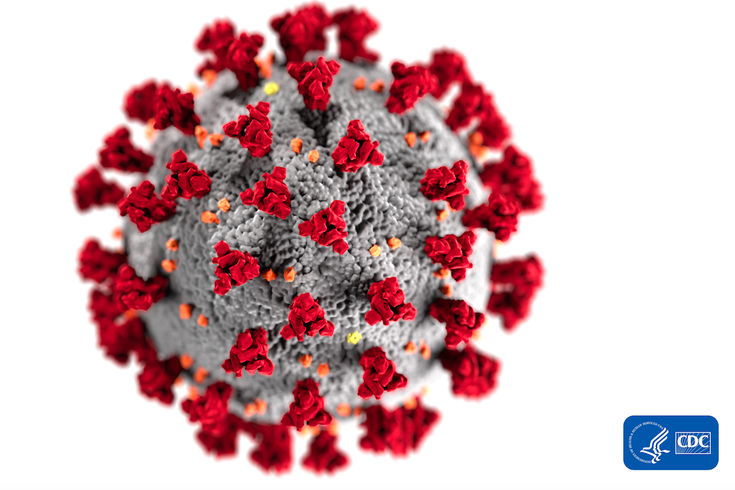
August 10, 2020
 Alissa Eckert and Dan Higgins/CDC
Alissa Eckert and Dan Higgins/CDC
Fatty Liver Disease can increase your risk for severe COVID-19, but the good news is that losing weight can help improve liver health.
Non-alcoholic fatty liver disease is another condition putting people at greater risk for severe cases of COVID-19, according to experts. This disease, however, often goes undetected leaving many people unaware they are high risk.
The Centers for Disease Control and Prevention already lists liver disease as one of the conditions that may increase a person's risk for severe COVID-19. Fatty liver disease isn't specifically mentioned though.
While it is a common condition – about 100 million Americans have been diagnosed with it – those who are asymptomatic may not know they have it. According to the Fatty Liver Foundation, 20,000,000 Americans have asymptomatic liver disease.
Fatty liver disease that is not caused by alcoholism is caused by a person having too much fat in his or her liver cells. People with disease also often are obese or have type 2 diabetes.
Recent studies have shown that patients with non-alcoholic fatty liver disease, particularly those with more severe fibrosis – or scarring of the liver – should be considered at greater risk for the severe symptoms of COVID-19. In one particular study, out of 310 confirmed cases of COVID-19, 94 had non-alcoholic fatty liver disease, and the severity of the viral illness worsened among those with moderate to high fibrosis scores.
Right now there is no regular screening for fatty liver disease so it often goes undetected until more advanced stages of the disease.
Exact why COVID-19 symptoms can be more severe among people with fatty livers is still unclear. Endocrinologists suggest it could be because the a compromised liver can't defend itself properly from the invasion of the SARS-CoV-2 virus.
The virus could also be gaining a stronger foothold in the body through ACE2 receptors in the lining of the liver bile ducts. These receptors, thought to be the virus' gateway into human cells, tend to increase with chronic liver damage, experts say.
COVID-19 and some of the treatments for it may also speed up the progression of fatty liver disease, other research has shown.
Dr. Juan Frias, an endocrinologist with the National Research Institute in Los Angeles, wants to raise awareness about non-alcoholic fatty liver disease and its association with severe COVID-19. People, especially those with type 2 diabetes and obesity, should talk to their doctors about whether they are at-risk for this type of liver disease, he told FOX News.
He added that there are ultrasounds and blood tests that can be done to determine a person's degree of liver fibrosis. The good news, he said, is that losing at least 10% of total body weight can improve liver health, but that weight must be kept off long-term.